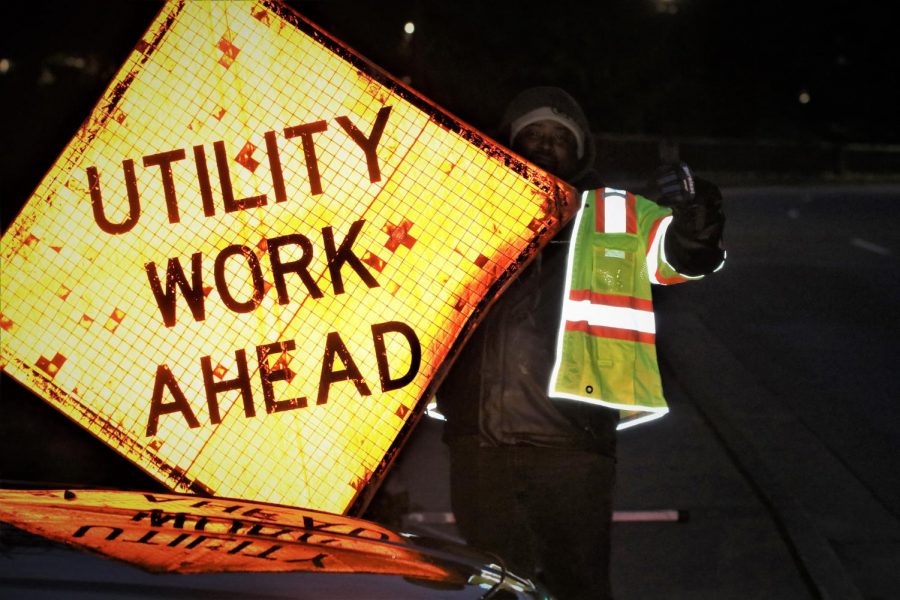Black History: More Than Just a Month
March 3, 2020
Every February, Americans gather to honor the integral role that black history plays in our country’s growth and foundation. We celebrate the groundbreaking achievements of leaders like Martin Luther King Jr. and Barack Obama, as well as those who persisted in the face of daunting oppression like Harriet Tubman. This month of recognition began as “Negro History Week” in the early twentieth century, coinciding with the birthdays of Frederick Douglass and Abraham Lincoln. The idea was gradually adopted by cities across the country and eventually evolved into an entire month during the civil rights movement of the 1960s. President Gerald Ford was the first to officially designate February as “Black History Month” in 1976, and since then, every president has called for its acknowledgement nationwide. Americans celebrate the month by recalling the teachings of black leaders, often applying a special focus on events in the civil rights movement in schools and the media. Yet, many feel this is not enough. While the recognition of black history is important, critics lament that its official holiday takes place during the shortest month of the year, instead arguing it should be celebrated year-long. Others criticize the tone-deafness with which many current leaders speak about black history, referencing the lessons taught by African-Americans who overcame massive barriers in hopes of a better future, but failing to let those ideals of equality influence their current leadership. Four hundred years after the first slaves were brought to America, our nation still struggles with the ideas of legitimate equal opportunity and how to confront our dark past.
To say that African Americans still face systemic oppression and experience racism regularly is not to say that progress has not been made in the name of civil rights. While recognizing the tremendous advancements in society is a central part of Black History Month, it just is not the only part. Black Americans are still confronted with a plethora of oppressive forces, from the fatal racial profiling present in policing to disenfranchisement to the abysmal black maternal mortality rate. Here at Issaquah High, students have encountered the issue of racism in many forms. Last year, the school made national headlines as a teenager made a racist sign to ask someone to a school dance, writing, “If I was black I’d be picking cotton, but instead I pick you.” The incident sparked backlash from community members and a walkout in the name of racial equity, but students of color still feel there is a racist atmosphere at the school.
Senior Sionet Nickerson criticizes the harmful stereotypes employed by non-black students, claiming that “there are many individuals at our school who have taken up this ‘ghetto’ attitude, trying to seem more ‘gangster.’ They listen to rap music, try to talk with ebonics, and wear their clothes a certain way.” This happens as a result of the increased integration of black culture into popular culture, in which white consumers enjoy customs that are deeply rooted in African American history as merely forms of entertainment, and try to emulate black caricatures without understanding the significance behind them. Senior Hritik Arasu adds that many students make light of racial issues, saying “[students] think it’s okay to joke about issues of race as younger kids but it’s becoming clear that things aren’t always a joke and have deeper implications.”
Nickerson also believes the education system perpetuates the role of racism, questioning why “[her] history in this country is an elective, and white history is the curriculum.” Often times, black history is seen apart from American history, when nothing could be further from the truth. Junior Sabreen Tuku also adds that “white society cherry picks the parts of black history that feed into their ideas of race, so that they feel more comfortable.” Tuku gives the strictly anti-capitalist views of leaders like Malcolm X as an example, claiming that she never learned about his more radical beliefs while in school. Clearly, there are a lot of problems that we as a school still have to face in order to better the experiences of black students and educate all students about the ideals of racial equality.
Issaquah High has taken significant steps to confront the issue of racism within the school in recent months. Just this February, students sat through a lesson on the modern-day implications of MLK Day, prepared by the school’s Consciousness and Racial Empowerment (CARE) club . Students were asked to discuss their experiences with privilege and how they could make the school a safer place for their peers belonging to minority groups. Sparking conversations is undoubtedly an important step towards a future without racial discrimination, but many students believe other steps should be taken as well, primarily by the students themselves. Nickerson encourages students to educate themselves about black culture, arguing that there are “so many sources online” for people to pursue an open dialogue about racism. Junior Jennifer Jeon is hopeful about the ability of our generation to confront the issue of racism, claiming “it begins with raising our awareness of racial injustices. We have the resources. All it takes is a few brave individuals to inspire our generation to confront a common cause.” Students at the school all view education as the best way to take on racism at a local, and global, level.
It is easy to host an assembly every year and tell students to remember the teachings of Martin Luther King Jr. It is easy to allocate a specific class day to learn only about Malcolm X or Ida B. Wells. It is easy to screenshot an inspirational quote from Barack Obama and post it to your story on the first day of February. But to honor the true teachings of Black History Month, we must work year-round to better our own attitudes towards racial injustice, as well as educate those around us. We must be willing to go out of our way to listen to the experiences of students of color. We must be willing to confront racism head-on, even if it is coming from close friends. Black History Month was created to honor the advancements of civil rights, but there is still so much work to be done. As February draws to a close, do not stop thinking about Martin’s dream. Instead, think about your capability to make change, no matter how small. It is in this that true progress is made, and it is the only way that that dream will ever be realized.




